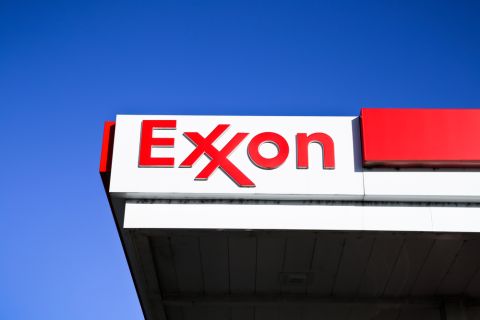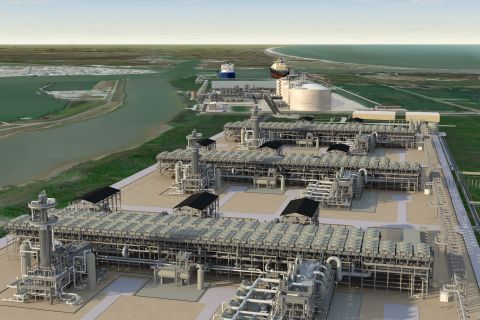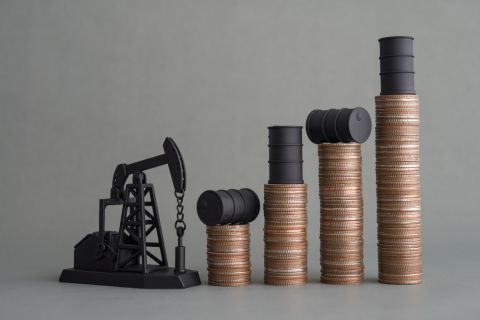Poland may drop a plan to create a state-run fund to participate in shale gas exploration ventures to alleviate objections from investors and speed drilling that may cost $4.5 billion.
The proposed fund, called NOKE, is not indispensable, Environment Minister Maciej Grabowski said yesterday in an interview in Warsaw. The planned fund would become a shareholder in domestic shale gas licenses to be sold under new regulations.
“NOKE is a tool to reach a goal,” Grabowski said. “If investors present the arguments that it would make their lives very difficult and we can find a formula that will protect the interests of the State Treasury and will be safe for the environment, I’m open to several options.”
Poland has granted about 100 licenses to foreign and domestic drillers including Chevron Corp. to tap unconventional gas resources, ranked as Europe’s biggest by the U.S. Energy Information Administration in 2011, as it seeks to cut its dependence on supplies from Russia. Grabowski, appointed on Nov. 27 to replace Marcin Korolec, has said his priority is to speed up exploration and declared that new laws guiding the industry will take final shape after consultations with investors.
The proposed regulations raised concerns including the scope of prerogatives that NOKE would obtain as shareholder in exploration ventures and about its financing and decision-making capacity, Marcin Zieba, general director at the Polish Exploration and Production Industry Organization, said by phone today. The group represents explorers including ConocoPhillips and PKN Orlen SA.
‘Seem Exaggerated’
“Investors’ concerns seem exaggerated to me and I think they don’t fully understand our intentions, so we will continue talking,” Grabowski said. “The next meeting will be held early next year.”
The 300 exploration wells proposed by operators may cost as much as $4.5 billion, assuming a cost per well of $15 million as estimated by Jacek Krawiec, chief executive officer of PKN Orlen, Poland’s largest oil company.
The number of wells completed this year fell to 12 from 24 last year, according to ministry data published Dec. 2, as foreign drillers including Marathon Oil Corp. and Talisman Energy Inc. withdrew from the nation.
Piotr Wozniak, the deputy environment minister who was in charge of preparing draft shale regulations and oversaw licensing procedures, was fired today and replaced by Slawomir Brodzinski, the ministry said.
EU Regulation
The risk of tighter European Union regulation of shale gas exploration is fading away, Grabowski said. The bloc’s legislators proposed in October to make environmental impact assessment studies mandatory at the stage of exploration.
“Lithuania’s rotating EU presidency failed to agree a compromise draft of changes to the legislation,” he said. “Maybe it will be continued by the Greek presidency but the risk has faded.”
Poland, along with the U.K., Romania and some EU members from Central Europe, are against tighter regulations, arguing that laws in place are sufficient.
“Advocates of tighter regulation do not have a majority that would be a threat to us,” Grabowski said.
Recommended Reading
Exxon’s Guyana Gas Project a “Win-Win,” Set for Hook-up by Year-end ‘24
2024-04-26 - Exxon Mobil Corp. CEO Darren Woods said the company’s gas-to-power project in Guyana as a “win-win proposition particularly for the people of Guyana” when completed and hooked-up by year-end 2024.
Segrist: The LNG Pause and a Big, Dumb Question
2024-04-25 - In trying to understand the White House’s decision to pause LNG export permits and wondering if it’s just a red herring, one big, dumb question must be asked.
Texas LNG Export Plant Signs Additional Offtake Deal With EQT
2024-04-23 - Glenfarne Group LLC's proposed Texas LNG export plant in Brownsville has signed an additional tolling agreement with EQT Corp. to provide natural gas liquefaction services of an additional 1.5 mtpa over 20 years.
US Refiners to Face Tighter Heavy Spreads this Summer TPH
2024-04-22 - Tudor, Pickering, Holt and Co. (TPH) expects fairly tight heavy crude discounts in the U.S. this summer and beyond owing to lower imports of Canadian, Mexican and Venezuelan crudes.
What's Affecting Oil Prices This Week? (April 22, 2024)
2024-04-22 - Stratas Advisors predict that despite geopolitical tensions, the oil supply will not be disrupted, even with the U.S. House of Representatives inserting sanctions on Iran’s oil exports.




